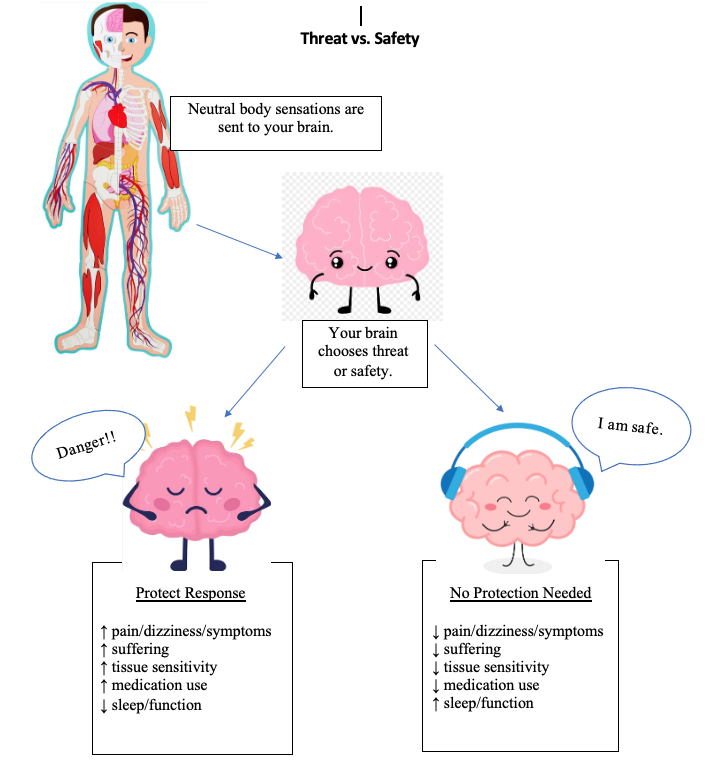Pain is a common reason people seek physical therapy in Boulder. Pain lasting more than three months is considered chronic, and over 20% of adults in the United States experience chronic pain.1 Regardless of whether the pain started earlier (acute pain), or a long time ago, it is important to know these facts about pain:
- 100% of pain comes from and is mediated by your brain
- The brain’s job is to process information and decide if it needs your attention (is this a potential threat/danger?)
- The brain may interpret actual nociception (like tissue injury and extreme temperatures) as painful (but not always).
- The brain may also interpret prior memories, events, current and past emotional stressors as painful, and often the pain presents in places you may have had pain in the past
- This doesn’t always show up as pain – sometimes the brain tries to get your attention with other symptoms (like fatigue, dizziness, headache/stomachache, stiffness, even lung/heart symptoms)….
- The brain is predictive: It will try to guess how things will feel in the future (for example, how my knees will feel when I squat, or how my back will feel after exercise)
If you are experiencing pain that is predictive (every time I (insert activity here)), or worse with emotional stress, memories, or anniversaries, you may be experiencing neuroplastic pain. It is important to reinforce safety messages and progressively show the brain that the body part is healthy and the activity is safe. Below are some steps you can take to rewire the way your brain is interpreting the situation to decrease the pain pattern:
- Prioritize general self-care such as deep breathing, doing activities that bring you joy, social networks, healthy lifestyle
- Practice positive self-talk/mantras: “I am healthy,” “I am strong,” “There is nothing wrong with me” – over time the brain will start to get the message
- Visualization: imagine what your (body part) feels like during (activity or situation). Approach this with curiosity and detached from the outcomes, but bring your attention to the sensations and see if they change. Over time the brain will realize that you’ve heard the message and are addressing the concern, and it will start to turn down the symptoms. Breath, relax, give your body and brain kindness. Repeat above mantras – you are recreating the brain’s prediction of the future
If you or someone you know are experiencing pain, or would like to know more about the brain’s role in the symptoms your are experiencing, you may benefit from individualized physical therapy with Dr. Sarah Burkhardt.
or email sarah@seatosummitpt.com with any questions!

